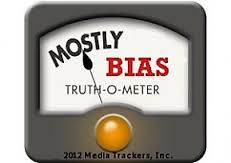By Bill Zeiser • Real Clear Politics
We at RealClearPolitics’ Fact Check Review are making an earnest effort to better understand how fact checkers work — and to share our findings with the public. We are doing so because much is unknown about the fact-checking process. What is clear, however, is that fact checkers are becoming increasingly influential — even to the point of being able to censor what you read.
The core of our project is hosting a site where you can view and search the data we are collecting about fact checks and the organizations that publish them. But to provide context beyond the numbers, we have also been regularly writing about observations we make while assessing the fact checks.
Since our only agenda is to better understand, we do this with no partisan or institutional bias. That means we offer praise and criticism as appropriate. For the fact-checking site Snopes, one of the longest running in the business, we have done both.
Snopes deserves praise because of the six sites we are examining — which are the same ones helping Facebook determine what you see on your feed — we have found that it is the least likely to “fact-check” matters of opinion. It is impossible to verify a subjective matter, so “fact-checking” opinions is a fool’s errand. It is also a surefire way to introduce bias into the fact-checking process, as the natural counter to an opinion is often another opinion.
We have found that since we started our project, Snopes has fact-checked opinions only 2 percent of the time. In other words, 98 percent of the time it sticks to matters of verifiable fact. Such an achievement is even more remarkable given that during this period, Snopes has produced the second-most articles of the six fact-checking outfits. The Weekly Standard comes in next most reliably at 95 percent, but it published only 44 fact checks to Snopes’ 400. Only PolitiFact released more fact checks than Snopes since we started Fact Check Review — 434 — and it comes in fourth place at 85 percent.
While Snopes deserves credit for its “just the facts, ma’am” approach to selecting its subjects, we have observed anecdotally that Snopes writers are in the habit of injecting editorial language or opinions into their fact checks. For instance, they called an unproven claim on knife crimes in London “heavy on Islam-blaming but light on evidence.” They labeled a questionable article on supposed “animal brothels” in Germany a “transparent attempt to spark fear and hatred.”
In evaluating a false conspiracy theory about Parkland shooting activist David Hogg, they added the extraneous commentary that “Hogg has been the target of a series of smears promoted by far-right blogs attempting to discredit him and his activist efforts for gun safety.” Elsewhere, Snopes exclaimed about the “increasingly hysterical tone” of Hogg’s “would-be smear campaigners.” And the site regularly calls the proprietor of a network of hoax news sites a “notorious purveyor of fake news who… operates a network of web sites including As American As Apple Pie and Freedum Junkshun, all of which claim to produce ‘satire.’” This is by no means an inclusive list. The reader need only pick a few Snopes pieces at random to find such charged language.
A June 28 Snopes fact check by Dan MacGuill is an interesting case study. The piece concerned Mike Huckabee’s claim that after his daughter, White House Press Secretary Sarah Huckabee Sanders, was refused service by the owner of the Red Hen restaurant in Lexington, Va., the owner then organized a protest against Sanders’ family members who were part of her original dinner group (the press secretary and her husband had gone home) outside of a second Lexington restaurant. MacGuill parsed Huckabee’s claim to the extent of observing that while “Huckabee repeatedly referred to the second restaurant as being ‘across the street’ from the Red Hen … there is no restaurant across the street from the Red Hen — that is, not on the same block of East Washington Street in Lexington.”
MacGuill reached out to several restaurants “within one or two blocks” of the one Sanders was booted from. According to an anonymous source he cited, the remaining members of her party dined at a restaurant “a few hundred feet away.” MacGuill was dismissive of the notion that this protest was organized, writing that his source told him that while a member of the public did hold up a sign, it “appeared to have been hastily put together on the spot.”
Finally, MacGuill waved off the notion that the Red Hen’s owner followed the people she’d booted from her own establishment, writing that “at some point in the evening members of the group encountered [Stephanie] Wilkinson outside on the street, but it’s not clear whether Wilkinson followed them there or simply happened to be passing by,” adding that given the close proximity of the two restaurants, “Wilkinson could have incidentally bumped into the Sanders family on her way to somewhere else.”
Although Wilkinson did not respond to a request for comment, Snopes rated Mike Huckabee’s claim “Mostly False.” In other words, MacGuill offered a subjective — and speculative — interpretation of events and the one most favorable to the owner of the Red Hen. The bottom line is that while Snopes doesn’t fact-check editorials, it does editorialize.

